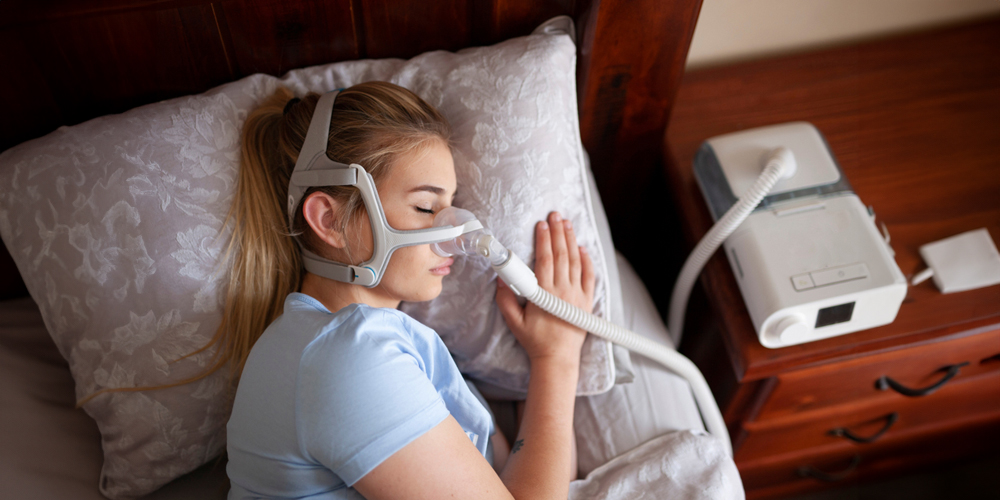While wondering about sleep troubles and heart issues, the connection between sleep apnea and atrial fibrillation (AFib) comes to the forefront.
Sleep apnea and atrial fibrillation are two common health conditions that can significantly impact one’s quality of life. Sleep apnea that is marked by brief breathing pauses during sleep, can disrupt daily life, while AFib, an irregular heart rhythm, poses its own set of challenges.
Recent insights have revealed a significant association between these two conditions, with untreated sleep apnea potentially elevating the risk of developing AFib. It is worth noting that by participating in sleep apnea clinical trials conducted by clinical research organizations, one can significantly decrease their risk of developing AFib.
Continue reading this blog as we explore what sleep apnea and AFib are, how they are both related, and what you can do to manage them.
What is Sleep Apnea?
Sleep apnea is a serious medical concern marked by repeated episodes of full or partial blockage of the airway during sleep. It is estimated that approximately 30 million people in the United States have sleep apnea but only 6 million are diagnosed with the condition. The most common kind of sleep apnea is Obstructive Sleep Apnea. These apneas lead to interruptions in breathing, which can significantly impact overall health. If left untreated, sleep apnea can have serious consequences, increasing the risk of developing cardiovascular complications such as heart disease, atrial fibrillation, heart failure, stroke, and even sudden death.
Understanding Atrial Fibrillation (AFib)
AFib is an irregular heart rhythm, affecting 2.5 million in the US. It occurs when the heart’s upper chambers quiver instead of contracting properly due to chaotic electrical signals. This can lead to blood pooling in the atria, increasing the risk of clot formation. If a clot breaks loose, it can enter the bloodstream and ultimately, result in a stroke due to AFib.
Signs & Symptoms of Sleep Apnea and AFib
| Sleep Apnea | AFib |
|---|---|
| Loud and persistent snoring | Chest discomfort |
| Struggling with breathing | Irregular heartbeat |
| Excessive sleepiness during the day | Fatigue |
| Mood Fluctuations | Shortness of Breath |
| Difficulty in Concentrating | Feeling of weakness and dizziness |
Risk Factors of Sleep Apnea and AFib
The connection between sleep apnea and AFib is evident, although the exact link remains somewhat unclear. Having obstructive sleep apnea increases the risk of having AFib by two to four times, and severe obstructive sleep apnea is associated with an even higher risk of developing AFib. Sleep apnea and AFib share many common risk factors that includes:
- Obesity
- High blood pressure
- Age
- Excessive alcohol use
- Smoking
- Family history of heart disease
- Hormonal imbalances such as thyroid conditions
Also read: Is Sleep Apnea Genetic?
How is Sleep Apnea and AFib Connected?
Sleep apnea and AFib are closely connected by several mechanisms such as:
- Sleep apnea can cause changes in the blood pressure and heart rate, which can trigger abnormal electrical signals in the heart and lead to AFib.
- Sleep apnea can cause inflammation and oxidative stress, which can damage the heart tissue and make it more prone to AFib.
- Sleep apnea can reduce the effectiveness of some medications used to treat AFib, such as antiarrhythmics and anticoagulants.
Diagnostic Approaches for Sleep Apnea and AFib
Diagnosing sleep apnea involves an overnight sleep test. This diagnostic procedure is employed to monitor the:
- Frequency of breathing interruptions or shallow breaths
- Blood oxygen levels and observe the sleep-time patterns through the brain and heart rhythms
Diagnosis of atrial fibrillation (AFib) may include:
- Blood Tests: are conducted to identify health conditions or substances that may impact the heart or its rhythm.
- Electrocardiogram (ECG): is a swift and painless examination procedure that provides insights into the heart rhythm and its rate of beats. It serves as the primary diagnostic tool for atrial fibrillation.
- Echocardiogram: uses sound waves to generate images of the active heart, revealing blood flow patterns and the condition of heart valves.
- Chest X-ray: is employed to assess the state of the lungs and heart.
Treatment Options for Sleep Apnea and AFib
Effective management of sleep apnea is the best way to reduce the risk of developing or worsening of AFib symptoms.
The primary and typically initial treatment option for sleep apnea is a continuous positive airway pressure (CPAP) machine.
These devices deliver pressurized air into the airways during sleep, preventing closure and facilitating breathing. This approach aids in minimizing the risk of complications, including AFib.

Also Read: Impact of Untreated Sleep Apnea on Life Expectancy
If an individual is already diagnosed with AFib managing heart rhythm and rate involves starting medications and undergoing various procedures.
Medications prescribed to help manage AFib symptoms:
- Beta Blockers: To slow heart rate.
- Calcium Channel Blockers: To control heart rate.
- Blood Thinners: To prevent blood clots and reduce the risk of clots.
Procedures involved to treat AFib:
- Cardioversion Therapy: involves restoring normal heart rhythm through controlled electrical shocks.
- Pulmonary Vein Isolation: is a catheter ablation technique that uses gentle and controlled freezing or burning of certain areas on the heart muscle to block irregular electrical impulses and prevent AFib.
Managing Sleep Apnea and AFib
As sleep apnea and AFib share common risk factors, adopting specific lifestyle modifications is beneficial for the prevention and management of both conditions. These include:
- Cessation of smoking
- Limiting alcohol consumption
- Stress management
- Losing weight
- Regular physical exercise
- Following a nutritious diet
- Ensuring sufficient sleep
Takeaway:
Sleep apnea and AFib are closely intertwined health conditions, with sleep apnea heightening the risk of AFib. The pressure fluctuations in the chest and frequent night-time awakenings associated with sleep apnea can strain the heart, potentially leading to damage in the heart’s rhythm and the onset of AFib. Recognizing and addressing the association between sleep apnea and AFib is crucial. By comprehensively treating both conditions individuals can enhance their overall health.




